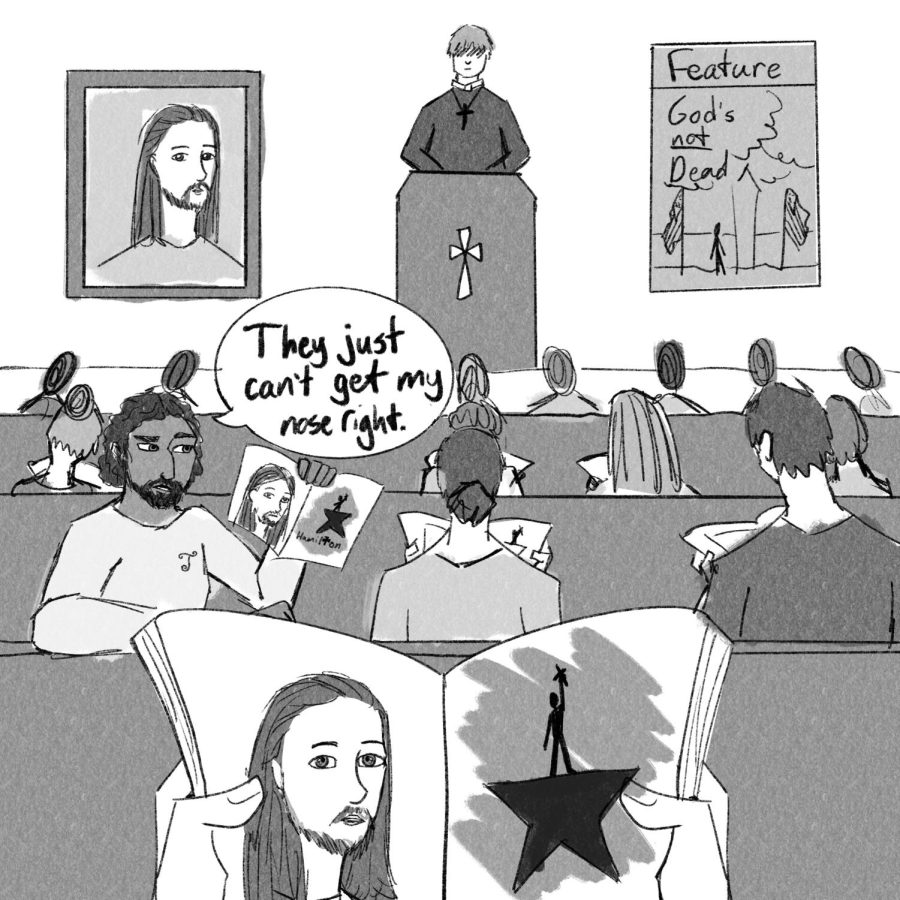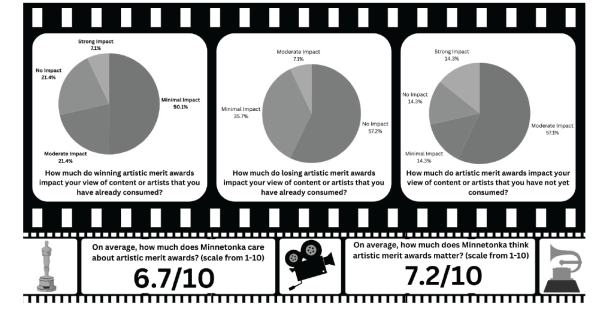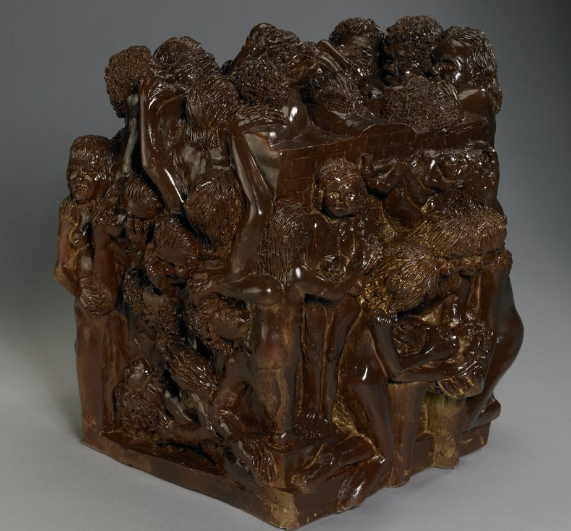Christianity as Entertainment: The Good, the Bad, the Questionable
September 30, 2022
As the largest mainstream religion, Christianity is practiced in every corner of the world. More than two billion people show their faith through jewelry, music, and interacting on social media. Christianity also has a major influence in mainstream entertainment, such as TV and theatre.
An anonymous senior who grew up in a Christian household commented, “The way Christianity uses entertainment is often to build the message of Christ and incorporate a fun way for followers to connect with one another.” In contrast, much of Christian film and music there has gained some criticism for prioritizing its views over the artistic quality.
Typical Christian movies like “Christian Mingle” (2014) and “Redeeming Love” (2022) would commonly feature poor execution of the message they’re trying to send, resulting in an unrealistic end product. Most of them show low-budget camera shots and awkward dialogues between characters. This can be illustrated in “God’s Not Dead”, which includes misinterpretation of other cultures, races, and religions, as well as one-dimensional portrayal of Christians.
Liv Penteado, ‘24, who has been a member at Westwood Community Church for five years admits that some Christian movies depict Christians as perfect and sinless.
“This is simply not [always] the case,”she added. “Christian films sadly ignore this, consequently coming across as preachy and cheap instead of describing the struggle to live a life that honors God.”
In Christian music on the other hand, pipe organs and grand pianos have been abandoned for electric guitars and drums. Hymnals gradually have been replaced by hard-hitting lyrics. Today most types of christian music are contemporary worship, rock, or modern. Another musical technique is adapting lyrics from popular songs.
“I’ve heard Christian camp songs that were ripoffs of pop songs, and they were done in complete fun and purely for enjoyment.” Isabelle Stroh, ‘23, a leader in Fellowship of Christian Athletes comments.
Though Christian entertainment doesn’t seem to do harm, it is sometimes used to send a maladapted message to the audience. One example recently in August was the adaptation of the iconic musical, “Hamilton”, by the Door Mcallen Church in Texas. Before the church even set up this play, they also modified many other copyrighted productions such as “Beauty and the Beast”.
“Whether a church or another theater who wants to do their own version of “Hamilton”, credit needs to be given because that’s the basis of human respect,” Anonymous senior replied. With this play, the Church altered the play’s lyrics and vocals and changed the original plot to fit the organization’s theology. The play portraying alcoholism and homosexuality as sins that can be fixed by God.
“Christians are called to share the gospel through a place of love and acceptance, the play failed to do that,” Penteado commented.
Furthermore Stroh suggested that there are other ways to promote the gospel other than using this sort of method, “Talking to people, building relationships, being there for people when they’re hurting the most—these are all better ways of reaching people with the Good News.”
Although the christian adaptation of Hamilton might raise some questions, it doesn’t mean that Christian entertainment is wholly controversial. There are many films like “Jesus of Nazareth” (1977), “Passion of the Christ” (2004), and “The Prince of Egypt” (1998) that depict both the explicit and biblical art and beauty of Christianity. As for music, church hymns help fill the chapel with spirit to strengthen connections to followers’ faith.
“Christian movies and music have been extremely helpful in helping me keep the faith,” Stroh commented, “Christian music in particular has helped me stay focused on God when all the messages from the world crown into my head.”
Christianity as Entertainment: The Good, the Bad, the Questionable






























